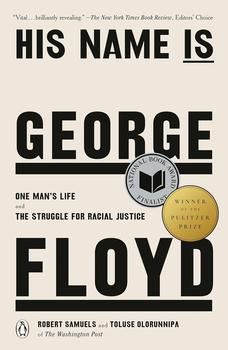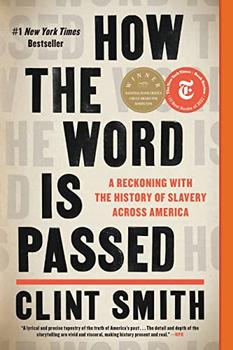Summary | Excerpt | Reading Guide | Reviews | Beyond the book | Read-Alikes | Genres & Themes | Author Bio

One Man's Life and the Struggle for Racial Justice
by Robert Samuels, Toluse OlorunnipaA landmark biography by two prizewinning Washington Post reporters that reveals how systemic racism shaped George Floyd's life and legacy - from his family's roots in the tobacco fields of North Carolina, to ongoing inequality in housing, education, health care, criminal justice, and policing - telling the singular story of how one man's tragic experience brought about a global movement for change.
The events of that day are now tragically familiar: on May 25, 2020, George Floyd became the latest Black person to die at the hands of the police, murdered outside of a Minneapolis convenience store by white officer Derek Chauvin. The video recording of his death set off the largest protest movement in the history of the United States, awakening millions to the pervasiveness of racial injustice. But long before his face was painted onto countless murals and his name became synonymous with civil rights, Floyd was a father, partner, athlete, and friend who constantly strove for a better life.
His Name Is George Floyd tells the story of a beloved figure from Houston's housing projects as he faced the stifling systemic pressures that come with being a Black man in America. Placing his narrative within the context of the country's enduring legacy of institutional racism, this deeply reported account examines Floyd's family roots in slavery and sharecropping, the segregation of his schools, the overpolicing of his community amid a wave of mass incarceration, and the callous disregard toward his struggle with addiction—putting today's inequality into uniquely human terms. Drawing upon hundreds of interviews with Floyd's closest friends and family, his elementary school teachers and varsity coaches, civil rights icons, and those in the highest seats of political power, Washington Post reporters Robert Samuels and Toluse Olorunnipa offer a poignant and moving exploration of George Floyd's America, revealing how a man who simply wanted to breathe ended up touching the world.
The authors' diligence in reporting from those who knew Floyd intimately as well as religious leaders, police officers and scholars creates a seamless narrative of Floyd's life embedded within larger forces of over-incarceration, a lack of job opportunities for those with a criminal record, and ever-present poverty with its associated stress and health damages. Eloquently told and expertly navigating the emotion and polarization that calcified after his murder, His Name Is George Floyd leaves readers better educated than it finds them and humanizes the man whose murder has been and can remain a catalyst for change...continued
Full Review
 (844 words)
(844 words)
(Reviewed by Rose Rankin).
In His Name Is George Floyd, authors Robert Samuels and Toluse Olorunnipa explain how Floyd's ancestors were dispossessed of their lucrative North Carolina farmlands via shady financial documents and restrictions on their literacy rendering them unable to read those very documents. This is just one example of the reassertion of white supremacy following the post-war period known as Reconstruction, and it fits into a larger pattern of discrimination that accompanied the collapse of government efforts to enfranchise and protect formerly enslaved people.
At the close of the Civil War, Congress passed a series of Constitutional amendments and other legislation that established equal rights for newly emancipated Black Americans. ...

If you liked His Name Is George Floyd, try these:

by Kellie Carter Jackson
Published 2025
A radical reframing of the past and present of Black resistance—both nonviolent and violent—to white supremacy.

by Clint Smith
Published 2022
The Atlantic staff writer and poet Clint Smith's revealing, contemporary portrait of America as a slave owning nation.
Censorship, like charity, should begin at home: but unlike charity, it should end there.
Click Here to find out who said this, as well as discovering other famous literary quotes!